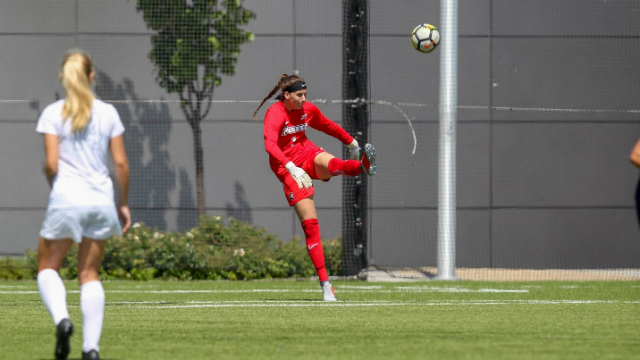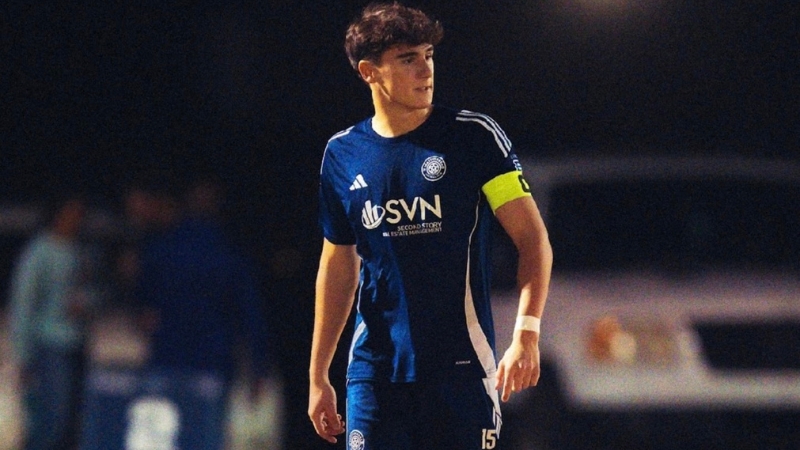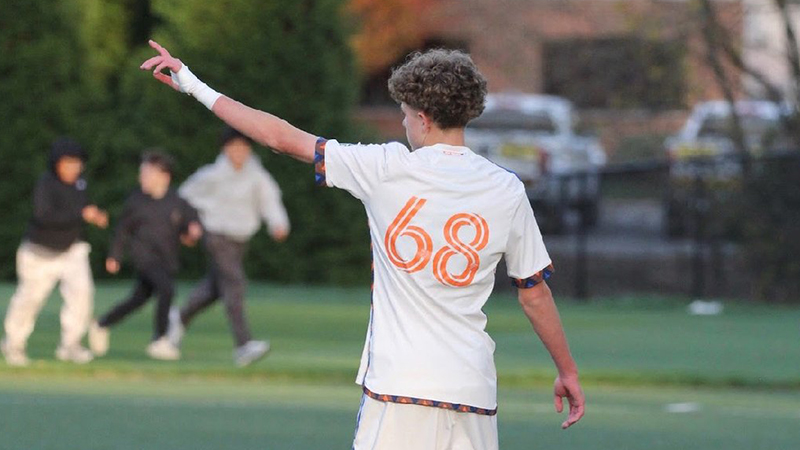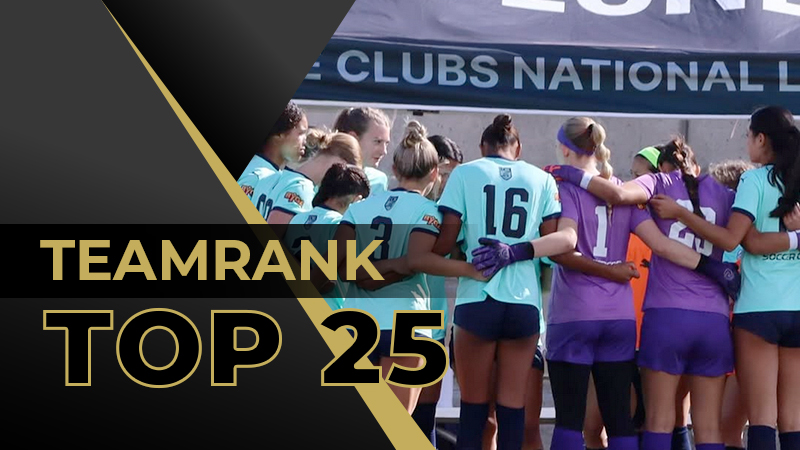So you want to be a collegiate goalkeeper?

For every one good goalkeeper coach across the country, there are a thousand youth goalkeepers learning the position in a trial-by-fire method. This can easily snowball as an uncoached player may not be able to see a poor habit they continue to practice.
For goalkeepers trying to make the jump to the college game, here are three tips to help prepare you the next level.
1. Don’t shy away from repetitive drills
It’s a common trait in the twenty-first century to know a little bit about everything while truly mastering none of it. Some of the worst goalkeeper training sessions are the ones where you do fifteen different activities in an hour. Don’t be afraid to slow down and focus on strengthening one part of your game instead of already looking forward to keeper wars or scrimmaging. Think of the player on your team that just runs around without any forethought. Don’t be that player. Your patience and attention to detail will pay off.
Barcelona spends hundreds of on-and-off-the-field hours learning their style. NASA didn’t flippantly put a spaceship on the moon. Even “simple” jobs like working a cash register take time to learn all the in’s and out’s of the store, which includes doing the same task over and over. College coaches aren’t exactly drawn towards goalkeepers who are half-good (aka half-bad) at everything.
For a position that rarely sees the ball during the game, take advantage of getting high reps in individual training, which transitions perfectly into our next point.
2. Similarly to studying for a test, practice what you’re not good at
Imagine you forgot there was a test today. As you sit down at your desk you open your notes. What do you study: everything you know or the parts you are clueless on? Of course you quickly study what you don’t know. The same goes for practices (but hopefully with a little more planning).
For most young goalkeepers, distribution and handling crosses are their weakest areas. But because their teammates know this, the team will do just about anything to limit any in-game situations that may result in an error from the back. They won’t pass the goalkeeper the ball in the build-up and will pack the box on corners because they don’t want the goalkeeper costing them a goal. While this may be a moderate stopgap for the current age group, teams will eventually expose a goalkeeper when players continue to become faster and smarter.
If you finish practice by never getting scored on or never flubbing a catch, you most likely haven’t had a hard enough practice. There is no scoreboard in practice, and while you may have a little extra running if your side loses a 5v5 scrimmage, it’s a needed risk for laying a strong foundation for the future. Collegiate coaches are looking for a confident goalkeeper and if you know you’re weak in an area that will resurface, it’s hard to be confident with that monster on your back. David de Gea and Alyssa Naeher didn’t wake up one morning as some of the best goalkeepers in the world. They were just as talented as everyone else at one point but they put in the work to get to where they are today.
No coach is expecting you to be perfect by the time you finish high school. In fact, if you’re perfect in an area, it’s probably because you’re really poor in another. Coaches want a goalkeeper they can work with and goalkeepers who have ignored major areas for the last ten years don’t exactly fit the bill. UIC goalkeeper coach Stan Anderson makes it a little more clear, “It’s hugely important for a goalkeeper to continue to work on the various weaknesses of their game. Why? At some point, someday, in some game, you’re going to be asked to deliver and you’d better be ready.”
Instead of trying to have a perfect practice, approach practices so you can be successful next week, next month, and next year.
3. You don’t have to play the position alone
There’s no shame in wanting to better yourself and even though there is some vulnerability in presenting an unfinished project - in this case, it’s your goalkeeping - it pales in comparison to the dread of realizing you didn’t adequately prepare yourself on the frontend.
There’s a reason the phrase “goalkeeper union” is so prevalent in goalkeeping circles. Every goalkeeper can remember a time when they wanted a little more feedback from a coach but for whatever reason, they couldn’t get it. Combined with the fact that the public is so focused on the negatives of a goalkeeper, don’t be surprised when former goalkeepers are quick to help out. From analyzing game or training video to searching for feedback to studying the world’s top goalkeepers, there’s a buffet-level of options out there for any goalkeeper looking to improve their game.
Taking it a step further, the recruiting process can be a little overwhelming for anyone who isn’t familiar with the collegiate environment. While certainly not every coach is out to trick you, their performances are tied to the success and presentation of the program, which may or may not include you. Talking to current or former collegiate players can lead to honest feedback about the process, especially when you’re asking more critical questions. For parents, talking to other parents whose children played collegiate and retired coaches is a good avenue when trying to find the nitty gritty details to the process.
Don’t take an outsider’s word for the gospel truth but also don’t limit your resources by being too stubborn to ask for help. Find a good combination of trusting in reliable voices and empowering yourself to become the goalkeeper you want to be.
Bill Reno is a goalkeeping enthusiast who covers the tops levels of American goalkeepers. You can find more of his writings at Everybody Soccer or reach him @letsallsoccer if you have an itch to discuss the US goalkeeping pool or the advantages of a tophand save.
Headlines
- Recruiting Roundup: February 2-8
- Professional Signing Tracker: 2025-26
- Tracking Division I Coaching Changes
- 2026 Women's Division I Transfer Tracker
- Winter Boys Club Soccer Player Movement
-
Best U19 Boys Outside of ECNL + MLS Next

- TopDrawerSoccer TeamRank Update - Girls
-
Commitments: Selecting a Service Academy

-
Five Players to Know from U15 BNT Roster

-
Best U17 Boys Outside of ECNL + MLS Next




